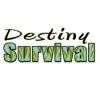

| Visitors Now: | |
| Total Visits: | |
| Total Stories: |

| Story Views | |
| Now: | |
| Last Hour: | |
| Last 24 Hours: | |
| Total: | |
Online Security–Know the Secrets the Bad Guys Know If You Want to Protect Yourself Online
You’d think our government would be looking out for criminals and terrorists , but it seems like they’re more interested in you and me. If you’ve read some of the same headlines I have, you know what I’m talking about. But I won’t elaborate here.
You and I are tracked online all the time by companies we buy things from. If you’ve shopped with Amazon, you know they know plenty about you based on what you’ve viewed and purchased there. It’s all done by computers. That can be a blessing or a curse, depending on how you look at it.
If Amazon knows about you, how easy would it be for the government to monitor what you do online? Is it possible they’re targeting preppers now?
Maybe. Or maybe not.
Computers take note of certain words you and I use in e-mails and web searches. If they raise red flags, according to the government’s view–and if enough red flags are raised–it could spell trouble.
But bad guys are using secret techniques to get around the system. And maybe peoplelike you you and me are easier targets because we don’t know evasive techniques.
But who says criminals and terrorists have to have all the good ideas?
And Who says you have to do anything illegal to protect yourself online?
That’s where Conrad Jaeger comes in. He’s a journalist concerned about the loss of our civil liberties. He was also my guest on yesterday’s DestinySurvival Radio to talk about online privacy and security.
He’s written an e-book on online privacy and security called Deep Web Secrecy and Security – an inter-active guide to the Deep Web and beyond. I reviewed it here. And Conrad was kind enough to write a guest post as well, which includes a number of helpful links. It gives you an idea of what we discussed on my show yesterday. You can view it here.
Believe it or not, when you and I use the Internet as we know it, we’re only scratching the surface of what’s really out there. That may come as a surprise considering how vast the web seems. But the deep web is largely an undiscovered country.
…Except to many criminals and terrorists.
If you and I want to be more secretive and secure online, we simply need to know how to cross the threshhold into the deep web. And Conrad’s e-book can open the door.
It’s the deep web which sparked his interest in these matters. So few of us know about it and how it’s being used. But it’s part of the package of knowledge that can help you and me conceal ourselves online.
Conrad says he’s not a computer geek. But he is a journalist who knows how to ask questions and get answers. The purpose of his e-book is to share those answers and make it as simple as possible for you and me to put certain practices and techniques into place.
It doesn’t require changing settings in your computer. A number of free programs can do what needs to be done.
When I read through Deep Web Secrecy and Security, much went right over my head. But I’m going to go through it again now that I’ve spoken with Conrad.
Not everything in it is for everybody. Pick and choose what’s most helpful for you. I’d suggest approaching the recommended tasks like eating an elephant–one bite at a time.
By the way, there are numerous links to access programs and sites mentioned in his e-book.
Conrad and I also discussed…
- E-mail privacy
- Browsing online privately and anonymously
- Steganography–hiding content within other content
- Blogging anonymously
- Erasing where you’ve been online
- A secret online currency
Online privacy isn’t on the list of things that come to mind when you and I think of topics related to prepping. But it should be now.
What steps have you taken to be safe and secure online? Have you used recommendations in Conrad’s book? Or are you concerned the authorities are on the lookout for people who use such techniques? Do you have advice for other computer users? Share your thoughts by leaving a comment below.
2012-08-31 06:54:51
Source:


